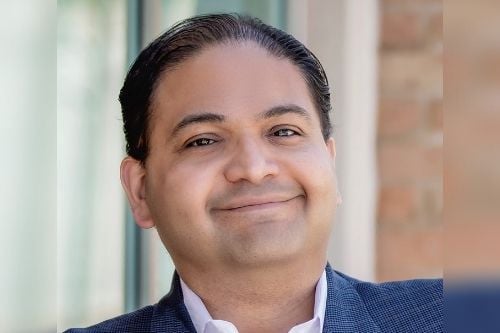

Consumer behaviours are nothing if not volatile and ever-changing, but a new report on what people want from their insurers today has highlighted key changes in consumer trends that the industry should take note of.
Based on a survey of over 47,000 consumers globally, Accenture’s latest “Global Insurance Consumer Study” has determined that more consumers are now willing to share data on their health and lifestyle habits with their insurers to reduce premiums. But, at the same time, consumer trust in insurers to take care of this data has dropped.
“One of the key things we saw was a desire to see, reflected by the change in living patterns, a shift in usage and behaviour-based pricing,” said Kenneth Saldanha (pictured), Accenture’s global insurance lead. “To achieve that, customers are telling us that they’re willing to share data, to the extent it’s being pulled to truly provide them with that behaviourally based pricing, and not to be misused … There has to be trust that you’re going to use this data accurately, because that is something that [insurers] can lose very quickly.”
While the world of auto insurance is no stranger to usage-based insurance, which is picking up speed in many markets, the shift to working remotely and generally being at home more often as a result of the pandemic has led to behaviour changes at home, and, in turn, has had an impact on what customers want from their homeowners’ insurance.
Read more: What do consumers want from auto insurance?
For instance, explained Saldanha, if an individual changes their password on the Wi-Fi router at home to something safer than the default ‘Password123,’ that behavioural change should mean that they’re at lower risk of cyberattacks and should thus pay less for personal cyber insurance.
Yet, while the Accenture survey found that the majority of respondents would be willing to provide data to insurers – specifically, seven out of 10 reported that they would share significant data on their health, exercise, and driving habits in exchange for lower prices – it also revealed that just under a third (32%) of consumers said that they put a lot of trust in their insurers to look after their data, reflecting a decrease of eight percentage points from two years ago.
One silver lining is that this mistrust in insurers isn’t solely the industry’s fault. In fact, said Saldanha, “There’s a general sense of heightened sensitivity and heightened fear … The tide is going out on trust, just as risk increases.” The expert doesn’t see anything that insurers have done that has driven that loss of confidence, but companies still have to deal with this notable change. To do so, insurance companies need to show consumers that they have the right data resiliency, security around insurance systems, and response measures in place so that insureds don’t have to fear being on the receiving end of a cyberattack notification email, telling them that sensitive data was compromised in a recent breach.
Taking this cybersecurity-focused step involves insurers having a technology infrastructure conversation across their organizations around how they’re defending their systems and data. Alongside this discussion, Saldanha noted that there is another key step that insurers have to implement.
“What I think most consumers are concerned about is, am I going to end up having my data used against me? So, I allow you to look at my driving data, and the next thing I know, I’ve got either sales offers, or worse yet, my health insurer is calling to say they’re changing my rates because they’re seeing different patterns in my lifestyle,” said Saldanha. “There’s a very high bar for both the technology resilience and data security [component], and the simple visibility into what data was gathered and how that was reflected in your specific insurance offering.”
